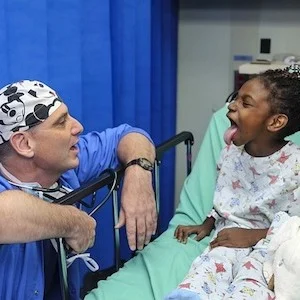Under most conditions, positive social interactions have
beneficial implications for employee performance, say Tel Aviv University
researchers
Several studies recently undertaken by The Tel Aviv University revealed that positive interactions with patients improved team performance under most conditions. Yet these generally positive effects can be neutralised or even reversed when teams are engaged in complex tasks such as a highly involved and difficult surgery.
The studies were conducted to understand how
positive social interaction affects cognitive performance on both individual
and teams in the work place.
You might also like: Happy staff, safe patients
For the first set of studies published
in Human Relations, the researchers examined the effects of positive
interactions among 432 undergraduate students randomly assigned into teams. The
task required the teams to make a series of decisions. Results showed positive
comments made within the groups had an overwhelmingly constructive effect on
team performance.
“Overall, team synergistic behaviour seems to be
positively influenced by the
types of positive interactions we studied. This is in contrast to the results
of earlier findings on the effects of negative or rude utterances directed at team members which found rather devastating consequences on medical team
diagnostic and procedural performance,” Prof.
Peter Bamberger, one of the studies lead researchers and faculty member of
TAU's Coller School of Management, told HealthManagement.org.
For the second part of this study, the researchers observed
377 surgical teams, over six months at a large, tertiary health care centre in Israel. The outcome highlighted
that positive interactions in the course of a complex task can be harmful in
certain situations.
“First, it suggests that there’s a time and place even
for positive utterances. Those “out of place” can distract the practitioner, and
ultimately harm the patient. Second, it suggests that positive utterances
and the affect that they generate can generate a sense of over-confidence and complacency. This is
something that we’re investigating in our current research,” Prof. Bamberger
said.
For the second set of studies, published in Pediatrics,
sought to explore whether it makes any difference if the source of positive
utterances is the patient’s family or a senior colleague. The researchers observed 43 neonatal
intensive care unit teams in training workshops and randomly assigned to one of
four conditions: (1) maternal gratitude generally from a mother; (2) expert
gratitude, between a physician and the teams; 3) combined maternal and expert
gratitude; or (4) control, where neither positive nor negative statements were
made.
The results indicated that the medical staff,
were positively influenced by maternal gratitude and more sensitive towards
interactions and feedback from patients' families but collegial/professional
gratitude had little effect.
In explaining why collegial/professional gratitude had no effect Prof. Bamberger commented: “Firstly, the manipulation may not have been strong enough; that is, the expert in their video may have been too “low key” in expressing his thanks. Secondly, it may be that participants feel that supervisory gratitude is less than sincere and more manipulative than positive. Finally, it may be that while supervisors frequently express gratitude (thus making it more routine), gratitude from patients/patient families is more unique and rare, and thus more attention-grabbing than salient.”
“Given that positive interactions are generally
reciprocated, it might make a lot of sense for providers to initiate positive
interactions. While quality care is the most important aspect of service
provision, providing it with a smile and a clear message of caring may generate
more positive patient reactions; reactions which, at least according to our
study, seem to enhance quality of
care. The bottom line here is clear,
as a patient, you should be nice and express gratitude to medical
practitioners," concluded Prof. Bamberger.
Source: HealthManagement.org interview, Eureka Alert
Image credit: TAU


![Tuberculosis Diagnostics: The Promise of [18F]FDT PET Imaging Tuberculosis Diagnostics: The Promise of [18F]FDT PET Imaging](https://res.cloudinary.com/healthmanagement-org/image/upload/c_thumb,f_auto,fl_lossy,h_184,q_90,w_500/v1721132076/cw/00127782_cw_image_wi_88cc5f34b1423cec414436d2748b40ce.webp)







